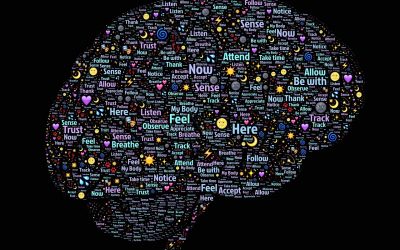Self-Love versus Egoism — Understanding the Difference
“Self-love” is a highly trendy term today. We often hear statements such as “you have to love yourself first before seeking love from others,” “self-love is healing,” “self-love is critical for happiness” and so on.
While the aforementioned and other self-love advice is inspirational to read, when it comes to its real-life application, one of the biggest challenges that most individuals face is being able to make a clear differentiation between self-love and egoism.
We tend to think that they are inseparable because we perceive putting and loving ourselves first is an act of self-centered individuals.
We have been taught from a young age that we should take care of others before taking care of ourselves. Even during our adulthood often when we look out for ourselves (with full integrity and positive intentions), many may still potentially label us as being selfish and egocentric.
Being overly focused on always putting others first comes with two big consequences—constantly seeking outside world’s validation and being disconnected from our own needs and happiness.
Contrary to the above belief, I am here to acquaint you with the idea that self-love and putting ourselves first isn’t a sign of egoism. Upon in-depth contemplation, I have learned that there are clear distinctions between self-love and egoism but, before we discuss these distinctions let’s first understand what self-love means and why it’s important.
What is self-love?
The essence of self-love is to unconditionally accept and appreciate ourselves completely as one single being (including our shortcomings and flaws). It’s a way of living where we treat ourselves with the same kindness, compassion, understanding, and support as we would to our family members, friends and others who have made mistakes or are facing some inadequacies and failures.
It’s about coming to peace with the fact that we aren’t perfect. It’s about not harshly judging or punishing (mentally/physically) ourselves for our past, or every little mistake we make, or when someone other than us has done or is doing better. It’s about facing our fears and insecurities head-on and slowly overcoming them. It’s about appreciating and learning from our shadow-side instead of complaining about its existence. It’s about giving our deep inside values precedence over our short-term feelings and gratifications.
With all that said, self-love doesn’t imply to stay with our shortcomings forever either!
Self-love is a dynamic and constantly evolving process where we truly accept and appreciate our current being while we work continuously on becoming an improved future version of our current selves.
Why is self-love important?
I truly believe self-love is a critical requirement to live a truly happy and fulfilling life. Beyond that, it’s a foundation of any healthy relationship including the one we have with our very selves.
Many scientific researches have directly associated “self-love” with increased healthy behaviours and choices, improved optimism, quicker recovery from unpleasant experiences and situations, less anxiety, depression and stress level to name a few.
Additionally, one must understand the fact that “we can’t give what we don’t have.” We all have limited reserves within us that need to be replenished not only for our welfare but also to be able to serve others sustainably for a long period. Always, putting others and their needs first can eventually indefinitely cease our healthy existence as well our ability to make our contribution to others.
Think of a situation where someone keeps withdrawing from their bank account without making any deposits. Depending on the account balance sooner or later they are bound to run out of money and despite their will, they simply can’t withdraw anymore. To use the account sustainably for a long period regular deposits have to be made.
Similarly, our personal happiness account not only has to have balance but it also requires regular deposits. The same logic applies to our helping, caring, and giving accounts to name a few.
With that said, we must take full responsibility for making these deposits by ourselves and not rely on others. Seeking help from others is not wrong however, being dependent on others most of the time is detrimental for self-esteem and confidence.
Differences between self-love and egoism.
1. Sources
Self-love comes from a state of love, abundance and completeness whereas, egoism is driven by fear, deficiency, and scarcity. Self-love involves sharing love and happiness with others while people infected with egoism view these as scarce resources and resist from sharing with others.
Egoism is driven by the motive of securing a large (often the largest) piece of pie without any consideration if everyone gets a piece or not whereas, self-love is driven by the intent to ensure everyone involved (including ourselves) get a piece, even if it means getting smaller pieces.
2. Expectations
Egoistic people are self-centered and often act out of pure self-interest. They only get involved or interested in others if they stand to benefit from them in some direct or indirect ways. Most of their relationships act as a bridge to get them from where they are to where they want to be. Egoistic people operate with a win/lose mentality.
People infused with self-love are generous and don’t purely act out of self-interest. They genuinely invest their time and efforts in others without having any hidden ulterior motives. Even in some cases where the relationship is initiated because of a necessity (for example a business relationship) they are mindful of other’s best interests and are fairly considerate of them. They approach relationships as a win/win attitude.
3. Criticism
Almost always, egoistic people can’t take slightest of criticism from others. Being very protective and insecure about their weaknesses, they view criticism as a form of war against them and become very defensive. Beyond that, if their shortcomings are indeed brought to light they make every effort to blame them on others.
On the contrary, people are driven by self-love openly welcome criticism. They can accept and appreciate their shortcomings and flaws. Being aware themselves, they evaluate the merits of the criticism and if found constructive they often learn from them and improve.
4. Admiration
Egoistic people admire themselves to a point where they wholeheartedly believe they are the core center of the world around them. They believe they are superior and perfect in all facets of their life even if it means simply pretending to the outside world. They often lack empathy for others. Although, not always but sometimes these self-centered views become so extreme that people turn narcissistic. In this state, they have a hyper-inflated sense of self-importance and a never-ending need of seeking attention and admiration from others.
Conversely, aware of their own limitations self-loving people value themselves realistically. They don’t overvalue their strengths while undervaluing their weaknesses. They don’t pretend to be something they are not and are often very compassionate. They understand and appreciate the importance of others and their respective contributions to the world around them. As open as they are in leading in situations where they feel competent, they are equally open to follow directions of others in varying circumstances.
5. Perspective
With being overly fixated on their self-existence and importance egoistic people aren’t able to see beyond their own beliefs. Hyped-up with the false sense that their personal perspectives, approaches, and solutions are the best, they often cause one conflict after another.
On the other hand, self-loving people recognize they are not perfect. They not only appreciate other’s perspectives but they open-heartedly seek them to gain a better understanding of the situation. They are considerate and listen to others creating minimal (if any) conflicts.
To conclude, while slightest of egoism is certainly not good however, under the realm of self-love if we do indeed find ourselves infected with egoism, we must accept its existence. Once we have embraced this reality only then we can slowly reduce egoism from our being and existence.
Namaste.



